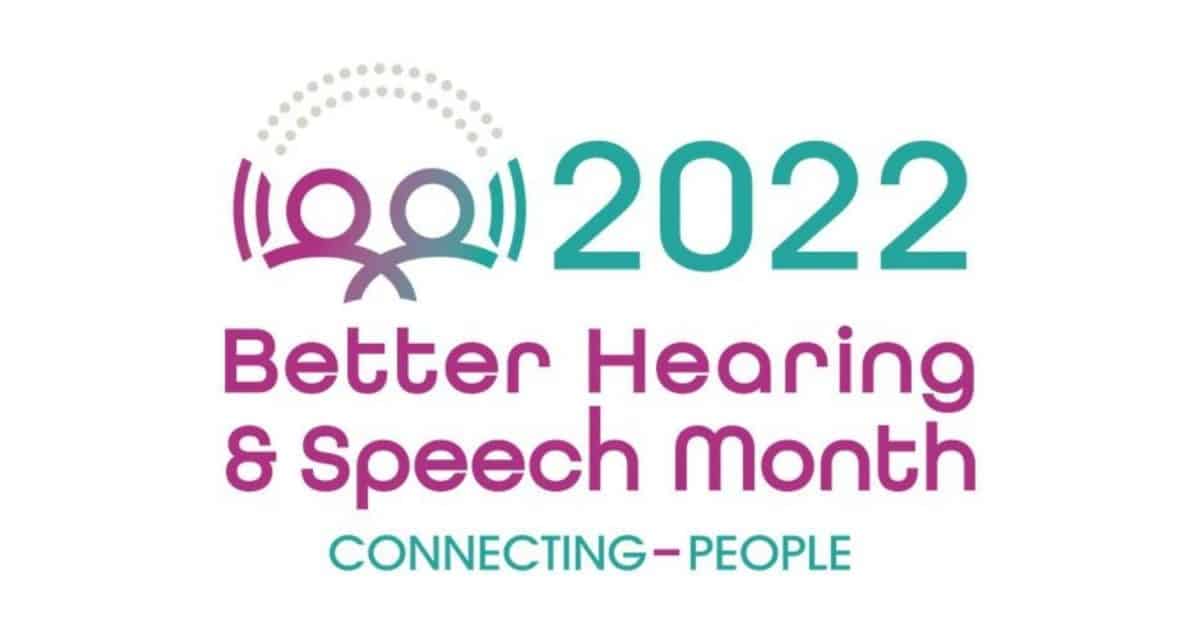- Understanding the Connection Between Tinnitus and Weather - May 17, 2025
- The Most Unexpected Reasons Hearing Aids Can Malfunction - May 9, 2025
- How OAE Testing Unveils Hidden Hearing Loss - April 15, 2025
Communication is the best way to connect with others. You might have heard the commonly held adage that good communication is the foundation of a healthy relationship. Although this statement might feel vague, it contains a wealth of wisdom about how to diagnose an unhealthy relationship and how to build a better one. This principle does not only apply to romantic relationships but also to the wide array of relationships in your life: family, friends, business, and community.
Each year the American Speech-Language-Hearing Association sets aside the month of May to celebrate Better Hearing and Speech Month. This year’s theme is “Connecting People,” and what better time to think about how to repair unhealthy relationships and to build healthier ones.
The following are some tips for building healthy communication if you have hearing loss. This additional barrier to communication can add to an already difficult situation, so this month is a great time to think about what you can do to build healthy communication into your life.
Tips for Communicating with Hearing Loss
If you have untreated hearing loss, you need to work proactively to communicate with your loved ones. When someone wants to connect with you, it is important to take steps to facilitate the best hearing environment possible. You can ask your loved ones to have conversations in quiet locations whenever possible. Voicing your needs is often all it takes to improve the communication setting.
If your loved one tends to call out from another room with questions or information, take the opportunity to request that they move to the same room and stand within eyeshot. Whether you realize it or not, you are probably using visual cues such as facial expressions, mouth movements, and body language to contribute to the information you receive from others. When someone calls out from another room, you are missing this context, and the volume of speech can be quiet and muffled.
If you have loved ones or family members who like to meet up for dinner out at a restaurant, you can set the stage for better communication. If you can sit in the center of the table, you will be in the prime location for hearing. You might want to read the menu online before coming to the restaurant to avoid awkward interactions with the server when it is difficult to hear. You can even request to be seated at a table in the quietest place in the restaurant, and making a reservation can help facilitate this table location. These are just a few of the tips that can help you communicate with your loved ones, building the possibility for healthier interactions.
Treatment for Hearing Loss and Relationships
Although these tips can go a long way toward improving your communication and thereby setting the stage for healthier relationships, they will almost certainly fall short in one instance or another. You might have relationships with people who are forgetful or inconsiderate when it comes to your needs for accommodation. Though they might not mean any harm, they can neglect to create a setting where communication is possible, and frustrations can arise between you.
Following helpful tips for better communication can only go so far, and the only durable solution for your hearing needs is to get professional treatment. When you have hearing assistance, you will not need to rely as much on external circumstances to be able to communicate. When the restaurant doesn’t have a quiet table for you or someone forgets to come into the same room as you before speaking, hearing aids can provide the assistance you need to connect with others.
The first step will be to get a full diagnostic exam of your hearing ability. Our hearing health professionals are here to guide you through the process of consultation, testing, and a recommendation for hearing aids that are suited to your individual needs. We can make sure you get the right fit in your aids and offer training and advice to get the most out of your hearing assistance.

